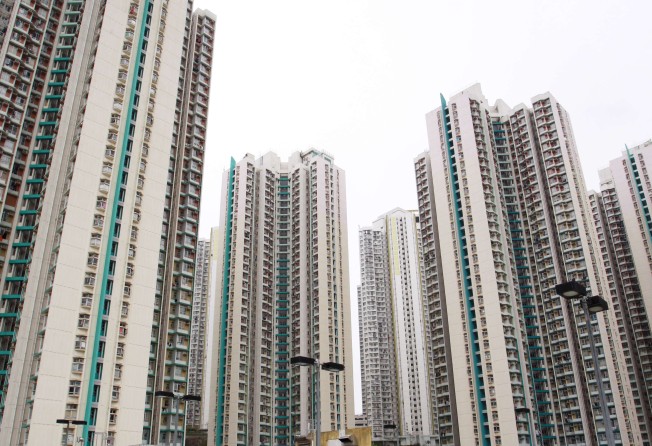Letters to the Editor, March 8, 2017

Citizens should seek unity and avoid conflict
I think most Hongkongers believe that one of main aims of whoever wins the chief executive election later this month should be to make the city harmonious again. But we have to ask how this goal can be achieved.
When Hong Kong was returned to the motherland 20 years ago, I think there was more unity and less dissent. Back then there should have been a concerted effort by the government to narrow the gap between rich and poor, as well as increase land supply and the number of public estate flats.
All citizens have a responsibility to try and reduce political strife, but, more importantly, it will be up to the new chief executive’s administration to make improvements, especially when it comes to housing policies.
Young people are angry about various issues, particularly with regard to the difficulties they face in finding an affordable place to live. It is very difficult for them to get a mortgage. However, while it is easy to criticise the government, we cannot blame a single party for the problems we now face.
If citizens continue to take hard lines politically, we will see more disharmony and this can only be bad news for the city.
Randy Lee, Ma On Shan
Force all ships to switch to cleaner fuel
I have no doubt that air pollution is getting worse in Hong Kong and this poses a risk to public health. Moreover, a new study shows that we cannot always blame regional factors (“Smog in HK can be generated locally, researchers find”, March 6).
Quite rightly, people point the finger of blame at road traffic, but we also have to recognise the pollution caused by shipping.
Many vessels cause emissions that contribute to the smog in the harbour. This spoils the views from the waterfront and is bad for the tourism sector.
The government must tighten its rules on marine pollution and force all ships in Hong Kong waters to use clean fuel.
Cathy Chou Yuen-ying, Kwai Chung
Passengers deserve polite taxi drivers
I refer to the report (“Taxi trade seeks help to raise standards”, March 1).
A simple way to ensure better service would be for taxi drivers to be polite to passengers. It would also help if they provided free Wi-fi for people using their smartphones.
Actually, I find most cabbies to be pleasant and often quite talkative. On one trip with my grandfather, he and the taxi driver chatted about old Hong Kong.
Vianna Cheung, Yau Yat Chuen
Tighter rules can result in better service
I support the rating devices that have been installed in some taxis in Hong Kong.
They will give passengers an opportunity to express their views about the quality of service provided.
I would like to see tighter regulations governing the taxi trade to make cabbies behave better.
So often they are rude to passengers and this is not the image they should be presenting in being competent and attentive professional drivers.
Jessica Lee, Kowloon Tong
Play method will be better than drilling
I agree with Paul Smith about language-teaching methods for young children (“Let Hong Kong children learn English and Putonghua through play”, March 6). The Education Bureau is directing kindergartens to swap study drills for play-based lessons to help children become more familiar with both English and Putonghua.
This is the right decision to make. In their early years in the education system, children should be discovering the wonders of learning in an enjoyable way, instead of burying their heads in textbooks. Besides, young children are not mature enough and lack the cognitive abilities to handle tough study drills.
I believe learning through play should also be applied to other subjects in primary and even in secondary schools.
For example, students can re-enact scenes from a piece of literature.
Trisha Tobar,Tseung Kwan O
North Korean defectors show great courage
It saddens me whenever I read stories about defectors from North Korea, such as the one about Jong Yol-ri who sought asylum while at an international maths event in Hong Kong last year (“N Korean maths whizz’s long taxi ride to freedom”, February 27).
We Hongkongers take our freedom of movement for granted. We simply buy our flight ticket and book our hotel, then we just need to turn up at the airport with our luggage and passports.
However, it is very different for North Koreans. If they want to escape from the country, they must risk their lives and possibly the lives of their relatives and friends who could suffer retribution. Many fail in their bid to defect and are killed or imprisoned.
In 18-year-old Jong’s case, his parents actually encouraged him to seek freedom despite the possible repercussions they would face.
There is a stark difference between North and South Korea. On one side of the border you have a democracy where people are free to throw out their politicians in elections.
They can travel wherever they want and enjoy freedom of speech.
On the other side is a dictatorship where citizens are deprived of these freedoms.
I admire those North Koreans who are brave enough to try to get out.
Wing Kwok, Tseung Kwan O
Dangerous pavement must be repaired
Would the Highways Department please attend to the dangerous nature of the pavements in Lyndhurst Terrace in Central? They are a menace.
I recently fell heavily thanks to a metal plate which had been laid badly, and could easily have suffered serious injury. My friends were not surprised, as they too have fallen on this pavement.
The bricks in the pavement are laid on a bed of sand, which is unstable in wet weather.
It is time for a better solution, in the interests of safety.
Barbara Park, Central